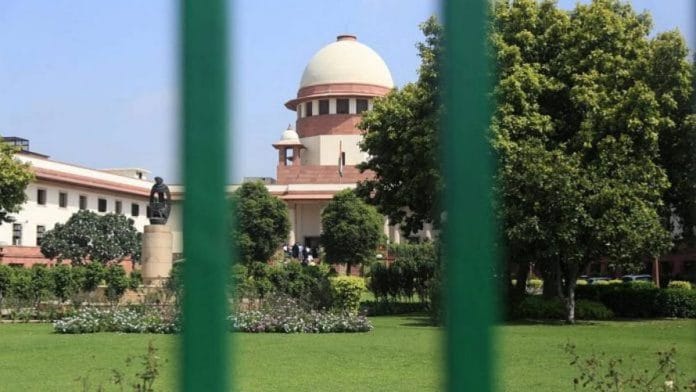New Delhi: After fighting over whether a central government-nominated governor can sit over state legislation for an indefinite period, opposition-ruled states Kerala and West Bengal are embroiled in yet another dispute with their Constitutional heads: this time, over the appointment of vice-chancellors in state-run universities.
While West Bengal has questioned the state High Court decision to allow the governor to make appointments to the office of 36 state universities, the Kerala governor has moved the Supreme Court against a High Court order that invalidated his nomination of interim vice-chancellors to two technical universities in the state.
In both, the Supreme Court has stepped in to mediate the dispute and appointed search-cum-selection committees to choose the vice-chancellors. These committees are headed by former Supreme Court judges, and have been mandated to choose VCs and members nominated by both the chief minister and the governor.
The bills over which states headed by opposition parties had sparred earlier with their governors were related to laws governing the appointment of vice-chancellors in state universities. The states wanted amendments to these laws to give the chief minister the final say in such appointments.
Only Tamil Nadu has been able to modify the laws, given that the Supreme Court in its case ruled that the governor’s assent to the bills was deemed due to the inordinate delay on his part to share his views on the state legislation.
The constitutional questions arising from this judgement are pending consideration before a five-judge bench hearing a Presidential Reference on whether timelines can be fixed judicially for governors and the President to assent to or reject a bill.
Also Read: As SC upholds Telangana’s 4-year domicile rule for NEET admission, a look at rules in other states
West Bengal
In West Bengal, some progress has been made in resolving the discord. In July last year, a Supreme Court bench led by Justice Surya Kant appointed a search-cum-selection committee headed by former Chief Justice of India U.U. Lalit to look into the appointments of vice-chancellors to 36 state universities.
The committee, after seeking inputs from Chief Minister Mamata Banerjee, forwarded a list of potential candidates to Governor C.V. Ananda Bose. For each university, a panel of four names was prepared, from which the governor was asked to make a final selection.
The last hearing took place 1 August. The Justice Suryakant-led bench noted on that day that the court-suggested mechanism was effective for 19 universities where appointments of vice-chancellors were cleared unanimously.
However, differences of opinion remained over 17 universities. In seven of these, the second persons on the list of three candidates recommended by the chief minister were found suitable by the chancellor. In eight others, the third person in the list was chosen by the governor.
But in two other universities, the court intervened to direct the appointments on that day, overruling the governor’s objections.
It went on to ask the Justice Lalit committee to submit its report on the 15 universities where the issue of the appointment of vice-chancellors remained unresolved.
The panel was told to give a final opinion on the suitability of the shortlisted candidates after examining the inputs from both the chief minister and the governor.
ThePrint has learnt that the Justice Lalit committee has submitted its report to the court. The tentative hearing in the case is listed for 22 September.
Kerala
The Supreme Court has made a similar intervention in Kerala’s case. Former SC judge Sudhanshu Dhulia has been asked to head a search-cum-selection panel to finalise the appointment of vice-chancellors to APJ Abdul Kalam Technological University, and Kerala University of Digital Sciences, Innovation and Technology.
The issue reached the top court when the Kerala governor questioned a July HC order invalidating his office notification announcing the appointment of an interim vice-chancellor to the two Universities.
The High Court order came on the government’s petition that the governor could have appointed the interim vice-chancellor for six months and not until further orders, as mentioned in the notification.
As the matter travelled to the apex court, the top court expressed its concern over the absence of full-time vice-chancellors at the prestigious universities and noted its impact on the students studying there.
To ensure students do not suffer due to litigation, the court suggested the two work together in harmony to appoint vice-chancellors to the two universities.
Acting on the directions of the court order, Justice Dhulia has finalised two different selection committees. According to Justice Dhulia’s letter to the Kerala government, both five-member committees are headed by him and comprise members nominated by the state and the governor.
However, the Kerala governor, as chancellor of the two universities, moved the top court again Tuesday, urging it to include the University Grants Commission (UGC). He wants the court to hear the higher education regulator since UGC regulations govern the appointment of vice-chancellors.
(Edited by Sugita Katyal)
Also Read: Remove V-C: JNU teachers’ body writes to President, cites ‘crisis of governance & lawlessness’






